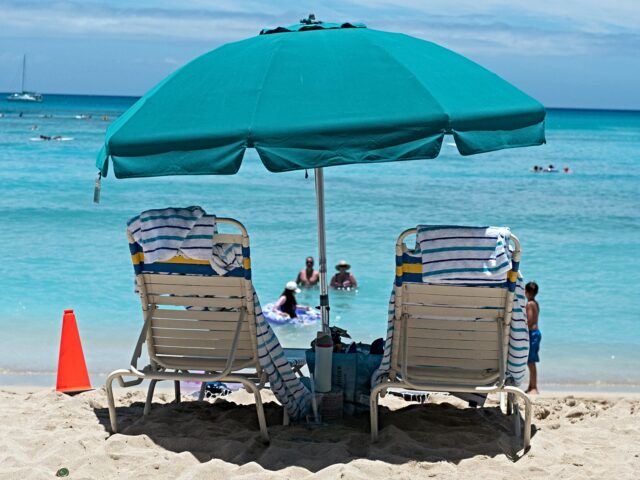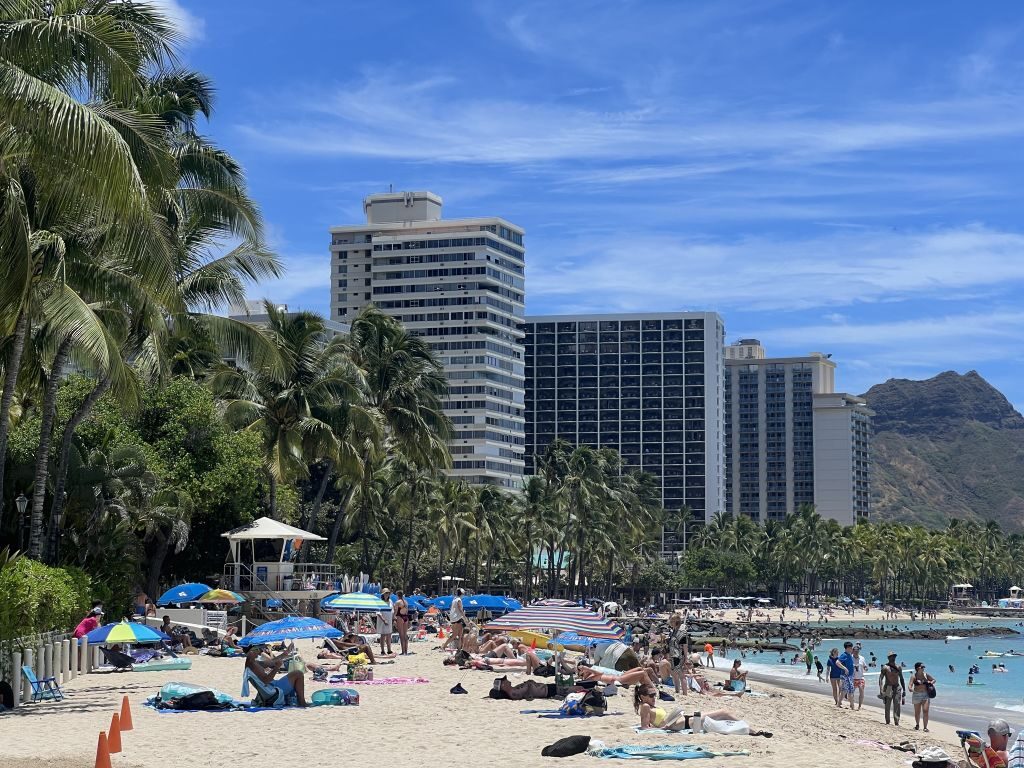Pay to Play: Hawaii Cries ‘Climate Change’ as It Hikes Tax on Travelers
 Smith Collection/Gado/Getty
Smith Collection/Gado/Getty
Planning a vacation in Hawaii? Might be better to make it sooner rather than later as local lawmakers are ready to hike a tax imposed on travelers staying in hotels, vacation rentals and other short-term accommodations.
AP reports the first-of-its-kind impost will earmark the funding boost for programs to cope with “climate change” with the politicians responsible pointing to the wildfires that devastated parts of Hawaii in 2023 as evidence that something must be done.
State leaders highlight projects like replenishing sand on eroding beaches, helping homeowners install hurricane clips on their roofs and removing invasive grasses as a starting point. The AP report notes:
A bill scheduled for House and Senate votes on Wednesday would add an additional 0.75% to the daily room rate tax starting Jan. 1. It’s all but certain to pass given Democrats hold supermajorities in both chambers and party leaders have agreed on the measure. Gov. Josh Green has said he would sign it into law.
Officials estimate the increase would generate $100 million in new revenue annually.
“We had a $13 billion tragedy in Maui and we lost 102 people. These kind of dollars will help us prevent that next disaster,” Green said in an interview per the AP report.
Gov. Green said Hawaii was the first state in the nation to do something along these lines, a move he described as an unabashed “green fee” on his X account:
Andrey Yushkov, a senior policy analyst at the Tax Foundation, a Washington, DC,-based nonprofit organization, said he was unaware of any other state isolating tax revenue specifically for the purposes of environmental protection.
The AP report goes on to note the increase will add to what is already a relatively large duty on those visiting for short-term holiday stays.
The state’s existing 10.25 percent tax on daily room rates would climb to 11 percent. In addition, Hawaii’s counties each add their own three percent surcharge and the state and counties impose a combined 4.712 percent general excise tax on goods and services including hotel rooms.
Together, that will make for a tax rate of nearly 19 percent effectively making Hawaii vacationers “pay to play.”

Crowded beach city buildings in the background, Waikiki, island of Oahu, Honolulu, Hawaii, July 24, 2024. Increasing numbers of U.S. citizens have been visiting Hawaii since 2014 and now they face a hike in the tourist tax. (Smith Collection/Gado/Getty Images)
The only large U.S. cities that have higher cumulative state and local lodging tax rates are Omaha, Nebraska, at 20.5 percent, and Cincinnati, at 19.3 percent, according to a 2024 report by HVS, a global hospitality consulting firm.
Gov. Green has long said the 10 million visitors who come to Hawaii each year should help the state’s 1.4 million residents protect the environment.
Newsweek reports Hawaii remains a highly popular tourist destination with increasing numbers of U.S. citizens visiting since 2014. Over seven million went to Hawaii in 2022, according to Statista.
Follow Simon Kent on Twitter: Follow @SunSimonKent or e-mail to: This email address is being protected from spambots. You need JavaScript enabled to view it.
Source link

